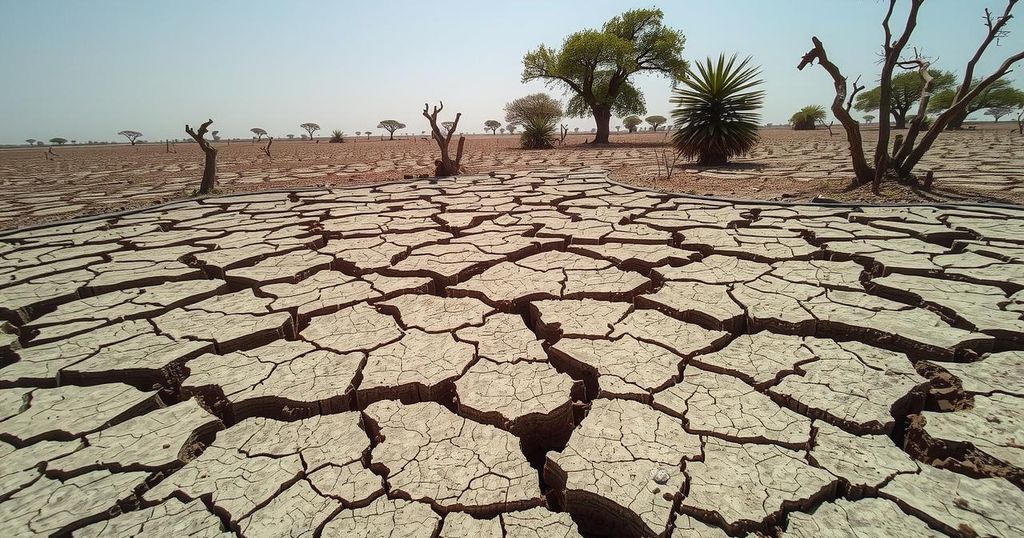Kenya is facing its worst drought in 40 years, impacting millions due to water and food shortages caused by climate change. The 2024 COP29 conference highlighted the need for financial support for adaptation efforts, culminating in the “Baku Climate Unity Pact” that aims to assist vulnerable nations in addressing climate impacts.
Kenya is currently experiencing a severe drought, the worst in the last four decades, which has led to millions of individuals grappling with the dire consequences of water and food shortages. Previously predictable seasonal weather patterns are now becoming increasingly erratic, contributing to heightened levels of distress among populations dependent on agriculture and livestock in arid and semi-arid regions. The situation has compelled many, especially women and children, to traverse extensive distances daily in search of potable water, often risking health issues from unclean water sources.
At the 2024 UN Climate Change Conference (COP29) held in Baku, Azerbaijan, Kenya emphasized the urgent need for enhanced financial assistance from developed nations to address these challenges effectively. The conference culminated in the formation of the “Baku Climate Unity Pact,” which outlines new collective financial objectives to bolster support for vulnerable nations and provides a framework for global climate adaptation. This initiative aims to fortify the resilience of the most affected countries, particularly those with minimal industrialization and, consequently, low greenhouse gas emissions.
Despite the strong international commitment to assist these nations, the critical issue remains the translation of these promises into specific actions that can meaningfully combat the impacts of drought and climate change for affected regions, including Kenya.
Drought in Kenya is a multifaceted crisis exacerbated by climate change, which has altered traditional weather patterns, making such extreme weather events more frequent. The UN reports indicate that significant portions of the population are facing potable water shortages, compelling them to resort to contaminated sources. This situation disproportionately affects vulnerable groups, particularly those relying on agriculture, underscoring the urgent need for assistance and adaptation strategies.
In summary, the severe drought affecting Kenya reflects a broader environmental crisis demanding urgent attention and action. The outcomes of COP29 highlight a willingness among nations to support vulnerable states, but consistent and effective implementation of pledged resources is critical to alleviating the ongoing suffering of millions in Kenya. Continuous international cooperation and focus on sustainable adaptation solutions are paramount for ensuring the survival and resilience of communities facing these critical challenges.
Original Source: www.aljazeera.com






